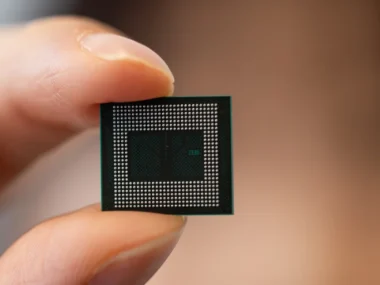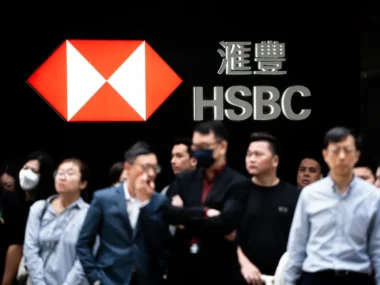We find ourselves at the beginning of a crucial year for the economy, with some experts believing that 2024 will define the entire decade ahead.
The United States’ economic path stands at a crossroads as it enters the mid-20s, balancing the potential for another technological revolution with ongoing challenges. The trajectory for this year will be influenced by shifts in the post-pandemic landscape, advancements in technology, and the upcoming presidential election.
The decisions made in 2024 concerning monetary policy, global politics, and artificial intelligence (AI) will likely set the direction for the U.S. economy for the rest of the decade. There are both opportunities and risks on the horizon.
Wall Street anticipates a shift towards rate cuts by the Federal Reserve in the midst of an election year. Additionally, geopolitical tensions in the Middle East and Europe remain a concern, despite the strength of the U.S. economy and positive consumer sentiment. The possibility of recession still looms.
The year got off to a rocky start, breaking a nine-week winning streak for U.S. markets, which historically holds significance as an indicator for the overall year’s performance.
To gain insights into the challenges and opportunities facing the economy in 2024, we can examine two previous years with similar beginnings but very different outcomes: 1924 and 1974.
In 1924, the Roaring Twenties officially began, characterized by innovation and economic growth. A low-intervention approach to business under President Calvin Coolidge’s leadership led to technological advancements, such as the proliferation of Ford Model T cars, the growth of radio broadcasts, and the invention of mutual funds. The decade witnessed remarkable economic expansion, and some experts believe we may be on the cusp of another era of growth, with predictions of record-high markets and surging corporate earnings driven by productivity gains, particularly in AI technology like ChatGPT. Interest rate cuts by the Federal Reserve are also expected to support this positive outlook.
Conversely, 1974 marked a different scenario. President Richard Nixon’s resignation and economic turmoil led to a severe bear market, with the Dow plummeting by about 45%. Rampant inflation and economic stagnation presented significant challenges that policymakers struggled to address effectively. The global economy was in disarray, with inflation being a particularly troublesome issue. However, amidst these difficulties, the year saw the emergence of the PC revolution, with Bill Gates founding Microsoft in 1975.
The path of the economy in 2024, according to experts like Gary Alexander and Ed Yardeni, will heavily depend on the role of Big Tech and the outcomes of the upcoming election.
As of the current situation, the SEC has not granted approval for Bitcoin ETFs (Exchange-Traded Funds) at this time.
Cryptocurrency proponents who were hoping for the Securities and Exchange Commission (SEC) to approve Bitcoin ETFs received a false alarm on Tuesday. An announcement was made from the SEC’s official Twitter account, suggesting that the regulator had approved Bitcoin ETFs. However, SEC Chair Gary Gensler promptly clarified on his own account that the SEC’s Twitter account had been compromised, and the message was unauthorized.
Gensler stated, “The @SECGov twitter account was compromised, and an unauthorized tweet was posted. The SEC has not approved the listing and trading of spot bitcoin exchange-traded products.”
The cryptocurrency community had been eagerly anticipating the SEC’s approval of spot Bitcoin ETFs, which would make Bitcoin investment more accessible to everyday investors without requiring them to directly own the digital asset. Following the initial (false) tweet, the price of Bitcoin briefly surged but then experienced a subsequent drop. By Tuesday evening, the value of Bitcoin had fallen by approximately 2%.
Why Tropicana is ditching AI
Certainly, one well-known brand is opting to distance itself from artificial intelligence (AI). Tropicana, a leading orange juice manufacturer, is launching limited-edition bottles that omit the letters “A” and “I” from its name, resulting in “Tropcn.” This marketing tactic aims to draw attention to the natural ingredients used in Tropicana’s orange juice, emphasizing that there have never been any artificial components in their product.
Tropicana has chosen to distribute these specially labeled bottles at CES in Las Vegas, where the company has stationed a truck to offer the juice during the event. Additionally, they are hiding 100 of these unique bottles in grocery stores across the United States, particularly those owned by Kroger, which includes flagship stores as well as others like Fry’s and Fred Meyer.











